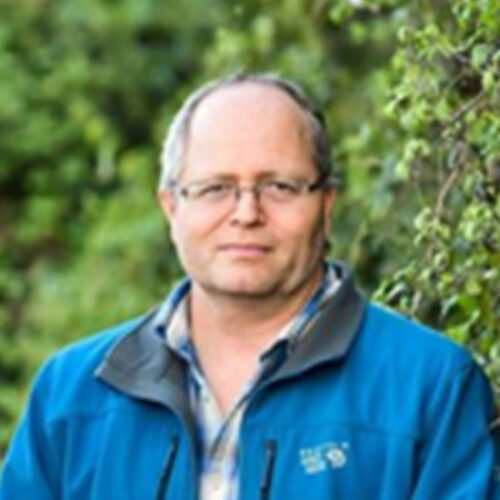Avner Rothschild is a professor at the Department of Materials Science and Engineering of the Technion. He studied physics and materials engineering at the Technion – Israel Institute of Technology, and graduated in 2003 with a PhD on metal-oxide gas sensors. After a three-year postdoc at MIT he returned to the Technion as a faculty member at the Department of Materials Science and Engineering, and the head of the Electrochemical Materials & Devices research group. His research focuses on electrochemical and photoelectrochemical materials and devices for water splitting as a means of sustainable production of green hydrogen from renewable energies such as solar and wind. Professor Rothschild is a co-founder of H2Pro, a startup company that develops a transformative water splitting technology for low-cost production of green hydrogen at scale. He was a member of several European consortia and had an ERC consolidator grant on photoelectrochemical water splitting. He is a fellow of the Royal Society of Chemistry, and in 2020 he won the 2020 Eric and Sheila Samson Prime Minister's Prize for Global Innovation in Alternative Fuels for Transportation.
ACADEMIC DEGRESS
- PhD, Technion – Israel Institute of Technology, 2003
- BSc in Materials Engineering, Technion – Israel Institute of Technology, 1997
- BA in Physics, Technion – Israel Institute of Technology, 1997
ACADEMIC APPOINTMENTS
- Full professor, Department of Materials Science & Engineering, Technion – Israel Institute of Technology (2018 – to date)
- Associate professor, Department of Materials Science & Engineering, Technion – Israel Institute of Technology (2012 – 2018)
- Senior lecturer, Department of Materials Science & Engineering, Technion – Israel Institute of Technology (2006 – 2012)
- Postdoctoral research associate, Department of Materials Science & Engineering, Massachusetts Institute of Technology (2003 – 2006)
SELECTED HONORS & AWARDS
- Guy Sella Research Prize in Energy (2021)
- Fellow of the Royal Society of Chemistry (2021)
- The 2020 Eric and Sheila Samson Prime Minister's Prize for Global Innovation in Alternative Fuels for Transportation (2021)
- Hershel Rich Innovation Award (2018)
- Kavli fellow of the United States’ National Academy of Sciences (2017)
- The Henry Taub Prize for Academic Excellence (2017)
- Uzi & Michal Halevy Award for Innovative Applied Engineering (2015)
- Theeman Scholarship, Technion Society of Australia (2012)
- Hershel Rich Innovation Award (2011)
- Yemini Environmental Sciences Fellowship, Wolf Foundation (2008)
- Alon Fellowship, The Council for Higher Education (2007 – 2009)
- Horev Fellow, Technion Leaders in Science and Technology (2006 – 2008)
- Fulbright Postdoctoral Fellowship (2003 – 2004)
PROFESSIONAL EXPERIENCE
Co-founder and advisor, H2Pro, a start-up company for hydrogen production by water splitting (2018 – to date)
TEACHING EXPERIENCE:
- Solar Cells (318126)
- Solid State Electrochemistry (317000)
- Properties of Electronic Materials (315030)
- Ceramic Materials (314311)
- Introduction to Materials Engineering (314533)
- Clean Energy Technologies (518001)
- Advanced Laboratory in Materials Engineering I & II (315001 & 315002)
- Decoupled photoelectrochemical water splitting system for centralized hydrogen production, Joule (2020, DOI: 10.1016/j.joule.2019.12.006).
- Decoupled hydrogen and oxygen evolution by a two-step electrochemical – chemical cycle for efficient overall water splitting, Nature Energy 4, 786–795 (2019).
- The “rust” challenge: On the correlations between electronic structure, excited state dynamics and photoelectrochemical performance of hematite photoanodes for solar water splitting, Advanced Materials 30, 1706577 (2018).
- The spatial collection efficiency of photogenerated charge carriers in photovoltaic and photoelectrochemical cells, Joule 2, 210-224 (2018).
- Two-site H2O2 photo-oxidation on haematite photoanodes, Nature Communications 9, 4060 (2018).
- Film flip and transfer process to enhance light harvesting in ultrathin absorber films on specular back-reflectors, Advanced Materials 30, 1802781 (2018).
- Photoelectrochemical water splitting in separate oxygen and hydrogen cells, Nature Materials 16, 646–651 (2017).
- Beating the efficiency of photovoltaics-powered electrolysis with tandem cell photoelectrolysis, ACS Energy Letters 2, 45-51 (2017).
- Heterogeneous doping to improve the performance of thin film hematite photoanodes for solar water splitting, ACS Energy Letters 1, 827-833 (2016).
- Hybrid bio-photo-electro-chemical cells for solar water splitting, Nature Communications 7, 12552 (2016).
- High solar flux concentration water splitting with hematite (a-Fe2O3) photo-anodes, Advanced Energy Materials 6, 1500817 (2016).
- On the solar to hydrogen conversion efficiency of photoelectrodes for water splitting, The Journal of Physical Chemistry Letters 5, 3330−3334 (2014).
- Identifying champion nanostructures for solar water splitting, Nature Materials 12, 842–849 (2013).
- Resonant light trapping in ultrathin films for water splitting, Nature Materials 12, 158-164 (2013).
- Probing the photoelectrochemical properties of Hematite (a-Fe2O3) electrodes using hydrogen peroxide as a hole scavenger, Energy & Environmental Science 4, 958-964 (2011).



